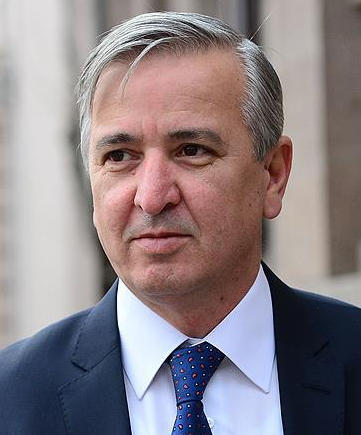
CHP’nin sol bagajı
Mustafa Kemal 19 Mayıs 1919’da Samsun’a çıktıktan hemen sonra Havza’ya geçmiş, burada 22 gün kalmıştı. Paşa’nın Havza’daki görüşmeleri ve faaliyetleri büyük oranda sır perdesi altında. Teşkilatı Mahsusa Başkanlığı da yapmış Hüsamettin Ertürk’e ait olduğu iddia edilen hatıratta, Mustafa Kemal’in Havza’da SSCB temsilcileriyle sıkı sıkıya pazarlık yaptığı anlatılıyor. Paşa’nın, Anadolu’da kurulacak yeni rejimin bir “devlet sosyalizmi” olacağı yönünde söz verdiği, “Sovyetlerin Şuralar Cumhuriyeti benzeri bir hükumet tarzı” ifadelerini kullandığı iddia ediliyor. Sovyetler Birliği, belki de bu görüşmeye binaen, önce Ermeni tehdidini ortadan kaldırmış, ardından da İstiklal Savaşı’na en büyük finansal ve lojistik desteği sağlamıştı.
SSCB ile Mustafa Kemal arasındaki bu yakınlaşma Lozan masasında yıkıldı. Türkiye, istikametini Batı’ya dönerken, Sovyetlere karşı hasmane bir tutum içine girdi. Ertürk, Fevzi Çakmak’ın, “Paşa bu hususta o zaman bana şunu söylemişti: ‘Bir sırat köprüsü geçmek zorunda idik. Köprüyü geçene kadar dayı dedik vesselam’ ifadelerini kullandığını iddia ediyor.
Gerçekten de Cumhuriyet amansız bir sol, sosyalist, komünist düşmanı olmuştu. Nazım Hikmet’ten Kemal Tahir’e, Sabahattin Ali’den Aziz Nesin’e kadar nice isim sürgüne, mahpusluğa, takibata, baskıya hatta suikasta maruz kalmıştı.
27 Mayıs 1960 darbesi Türkiye’de solun önünü alabildiğine açtı. Bunda kuşkusuz Sovyetler karşıtı bir sol anlayışın dünyada güçlenmesinin etkisi de vardı. İrili ufaklı sol örgütler kurulurken, İsmet İnönü ve Bülent Ecevit, 1965 seçimlerinin hemen öncesinde CHP’nin “Ortanın Solu”nda olduğunu ilan ettiler. Yön Dergisi çevresinde toplanan bir başka grup “Sol Kemalizm” adı altında özellikle orduda güçlendiler. 1972’de İnönü’yü devirerek CHP Genel Başkanı olan Ecevit, Ortanın Solu’nu önce “Demokratik Sol”a, ardından “Sosyal Demokrasi”ye taşıdı. 70’li yıllarda, CHP, sadece Sol Kemalistlerle değil, Türkiye’deki hemen her sol örgütle artık “akraba” haline geldi. Büyük bir örgütlü yapı olması nedeniyle de CHP Türkiye’de solun en güçlü kalesi haline geldi.
CHP’nin Türkiye’deki sol örgütlerle akraba ya da yoldaşlığı elbette kendisini sol olarak tanımlayan PKK’yı dışarda bırakmadı. Çok fazla örnek var: 1991 seçimlerinde Leyla Zana, Hatip Dicle, Mahmut Alınak, Selim Sadak SHP adayı olarak seçime girip Meclis’e geldiler. TBMM’de CHP ile değişik isimler altındaki PKK uzantısı siyasi partiler arasında her zaman eylem ve söylem birliği oldu. Meydanlarda, eylemlerde, protestolarda hep birlikte hareket ettiler. 2019 yerel seçimlerinde, 2023 Genel Seçimlerinde ve 31 Mart’ta CHP ile bugünkü adıyla DEM ittifak halinde oldular. Seçim süreçlerinde CHP Genel Başkanları Kılıçdaroğlu ve Özel, PKK aleyhine tek cümle kurmadılar. Hatta CHP Diyarbakır adayı Sezgin Tanrıkulu’nun, PKK’nın kurulduğu Fis köyünden PKK ağzıyla verdiği mesaj CHP içinde görmezden gelindi. 31 Mart seçimleri sonrası da CHP ve DEM’in ortak eylemleri, ortak söylemleri daha güçlü şekilde devam ediyor.
İnönü ve Ecevit “Ortanın Solu” kavramını ilan ettiklerinde, muhalifleri, “Ortanın Solu, Moskova’nın Yolu” sloganıyla 1965 seçimlerinde CHP’ye ağır bir hezimet yaşatmışlardı. Ortanın Solu Moskova’nın yolu olmadı ama 60 yıl sonra Kandil’in yolu, oradan Washington’ın, Tel Aviv’in yolu oldu.
CHP, ideolojik ve teorik büyük bir kafa karışıklığı içinde olmakla ve içinde az da olsa Kemalistleri, bir miktar ulusalcıları barındırmakla birlikte marjinal, radikal bir sol partiye dönüştü. Bu solculuğun millilikten epeyce uzak, PKK gölgesi altında Amerikancı bir sol olduğuna şüphe yok.
Şu sıralar CHP, Hüda-Par üzerinden Cumhur İttifakı’na, özellikle de MHP’ye yükleniyor. “Yavuz hırsız” misali, aynaya bakmak yerine, günahlarını, hatalarını, içine düştüğü bataklığın sefaletini örtmek için saldırı pozisyonuna geçiyor.
Cumhur İttifakı’nın savunma pozisyonuna geçmesi büyük hata olacaktır. Hüda-Par’ın Cumhur İttifakı içinde olması ve öyle kalması sadece siyaset için değil Türkiye için de büyük kazanımdır. CHP’ye cevap vermek yerine, ona ayna tutmak, Ortanın Solu’nun nasıl terörün yoluna yöneldiğini göstermek, maskeleri düşürmek, bunu da özellikle CHP seçmenine, CHP’ye oy verenlere tane tane anlatmak kuşkusuz Türkiye’nin hayrına olacaktır.
